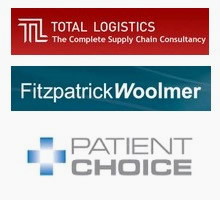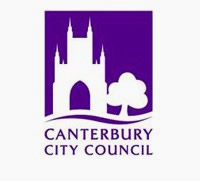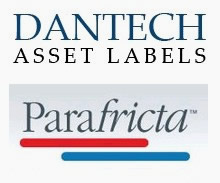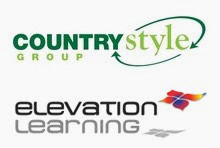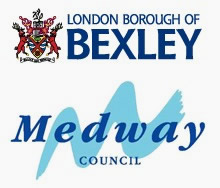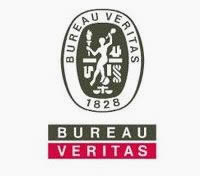Website Design issues
This page contains links to various other pages with information on how to create your own website and how to start optimising your website for the search engines. There are also links to issues such as accessibility, search engine positioning, Internet marketing and E government compliance.
- Effective website design - gives advice on good website design
- DIY website design - gives advice on creating your own website
- Accessible websites - gives information on accessible websites
- Colour blind issues - gives some examples of how colour blind people see websites
- E Government compliance - gives some explanation on all the jargon created in relation to E government compliance
- Search Engine Optimisation - gives some advice on how to make a start at getting your website to appear high up the search engine rankings
- Search Engine Positioning - gives information on search engine positioning
- Internet Marketing - gives a summary of Internet Marketing techniques
- Internet business opportunities - gives a summary of the various business opportunities available particularly to small business and organisations
- Accessible websites good for business - explains why creating an accessible website makes excellent business sense.
Attracting New Customers
The Internet offers an excellent opportunity to publicise your company or organisation to a worldwide audience. It gives the opportunity to sell products and services to an international market place, or give information to an international audience. For small to medium enterprises it gives the opportunity of reaching a geographically spread niche market.
A Web Presence
The first stage of developing an Internet presence is often a small website that gives good factual information about the company, its products or services and the company contact information. However, Cornish WebServices always design a website to be more than just a web presence - it should always be viewed as a marketing tool and designed as such.
These websites will be used in two ways. If they are well designed to include search engine optimisation, then they should attract relevant visitors who may become potential customers. But they will also be used by existing customers or potential customers who are using the website to find out further information about the company. This means the website should have the correct 'look and feel', give the appropriate information and it should work (no broken links, missing pages).
Company Info / Customer Services
Websites are increasingly being used as a contact point. This may just be providing the contact telephone number, but often also an email address or contact form. Contact forms are increasingly important with the recent e-commerce regulations that require opt in consent to email marketing. If your website was designed before 2003, you should check that any contact forms used do comply with the E-commerce regulations.
Online Catalogue
An on-line catalogue is effectively the web-based equivalent of a glossy company catalogue. It provides the potential customer with product details, enabling them to contact the company to purchase the goods or service required. These can be integrated with a stock database and online payments. Some companies are also creating CD-ROM versions of these web-based catalogues as they are cheaper to produce than a glossy catalogue.
An on-line catalogue website is also a very effective method of increasing brand awareness - provided the website design incorporates search engine marketing techniques to make the catalogue pages visible to search engines. It is possible to use various free or very cheap online catalogues often provided by hosting companies, but many of these produce web pages that are never indexed by the search engines. This will not help market your company products on the Internet. Cornish WebServices can create catalogue style websites where every page is highly visible to search engines.
Online Payments
If you are selling a product or service to consumers, or wish to collect membership money from subscribers, then this can be done with on-line payments via a website. In 2002, the UK government brought in new E-Commerce legislation to deal specifically with selling goods and services over the Internet. There are a few standard requirements that are still missing off many websites that accept on-line payments.
Any website that accepts online payments must give the user the full contact details of the business, including the VAT number if relevant. There must also be a clear indication of prices and if relevant any delivery or tax charges.
When accepting credit card payments, the users credit card numbers must not be emailed or entered into a webpage unless encryption or a secure server is used (and the padlock is visible at the bottom of the browser window).
For most businesses or organisations, the easiest way now to accept credit cards is either to use the Pay Pal system or to use another internet payment service provider (such as SECPay or World Direct). For an existing business or organisation, the choice will depend chiefly on the expected volume and size of transactions expected, as the various payment service providers take differing transaction charges.
eCommerce
eCommerce refers to the complete marketing, order processing, payments and customer service delivered via the Internet. Many of these processes can be automated with very low overheads, enabling start-up companies to compete very competitively with existing companies.
Almost all e-commerce systems involve a database for storing and processing essential data. It is common to link the front-end website into existing database systems handling customer and order information.
Internet Marketing
Internet Marketing covers a variety of techniques such as website positioning, advertising, email marketing and market research. Website positioning is discussed in more detail on the search engine optimisation page.
However it is worth mentioning that Internet marketing cannot be done in isolation from conventional marketing - in reality there should be one total marketing plan. This may include direct mail, press releases, and advertising. All company communications should contain your web address for people to find out further information.
Internet Advertising
Internet advertising has included methods such as banner advertising and popup windows - two strategies that often cause great annoyance. If you get annoyed with popup windows, then download some software to stop these from appearing (one such useful tool is the Google Toolbar). If users can prevent popups from appearing, then they are not a very good advertising tool (unless you wish to annoy potential customers). Most banner advertising also falls into this category.
Affiliate Programmes
A more useful form of internet advertising is through Affiliate Programs. Affiliate Programs pay commission to other web sites in exchange for promoting your products or services with a link to your site.
Pay Per Click Advertising
The most successful internet advertising is pay per click advertising. You pay a fixed amount every time someone clicks through to your website based upon keywords they have selected. Provided you choose a good set of specific keywords, this means you are only paying for visitors who are interested in whatever your website has to offer.
Email Marketing
Email marketing has received a very bad press recently through the large number of unsolicited Spam. There is now new legislation in place that affects how and when you can send marketing emails. Basically you need to opt in to any such email contact list, and the email list should never be passed on to anyone else. But email marketing can still be a powerful marketing technique, especially for repeat sales.
The big advantages of email marketing are its low cost and its flexibility. It is possible to test market with a small number of addresses, and then extend or later the message as appropriate.
Newsgroups, Forums & Social Media
Good social and forum discussions tend to focus on a particular subject, and can provide a very effective form of advertising rather similar to getting free press coverage. Often direct advertising is not allowed on these forums, although new mediums like Promoted Tweets and Facebook PPC are rapidly expanding the possibilities in a variety of industries.
Market Research
Market research can be a large topic in itself. However if you have a website and you have access to your webstats (all decent hosting companies provide this free) you already have access to quite a bit of information about the people who view your website.
The webstats give you information on the browsers and operating systems - from which can be gleaned information on the age of the computers and the type of user. You should be able to discover how they are arriving at your website - through the search engines (and which ones, in which countries), through directories or through reciprocal links.
A website can provide a feedback form - which may give some useful comments. You can add in some other information into contact or order forms, although a balance must be struck between collecting useful data and putting off potential customers by making forms too long to fill in.
Opportunities For Charities & Non Businesses Online
The Internet provides a great opportunity for organisations to distribute information about themselves. Today the Internet is THE most important source of information - whether this is financial, news, historical, scientific or pastime related. Today we expect to be able to find out information about public services, transport timetables and fares, the weather and the latest exchange rates online.
A well designed (search engine optimised) website will enable information about your organisation to be found on the Internet. Most organisations are geographically related, and geographical regions are often used to narrow down a search. In the first instance this may just be UK, as most English websites on the Internet relate to the us, but may be more specific still and relate to a county or group of towns.










